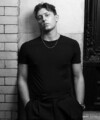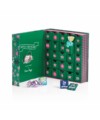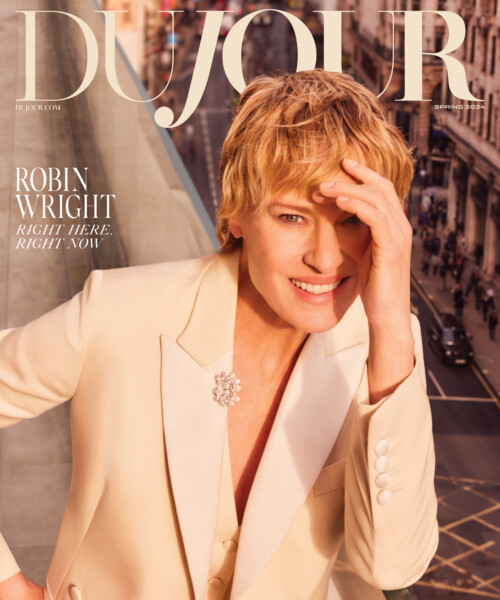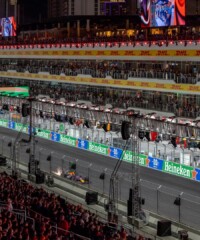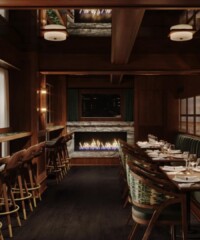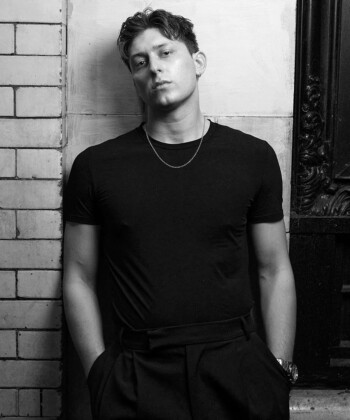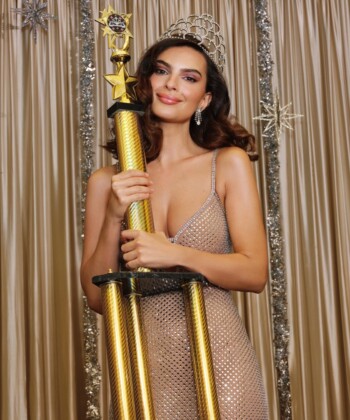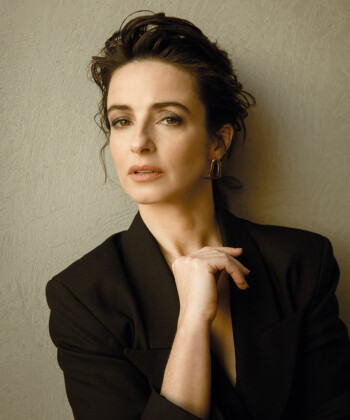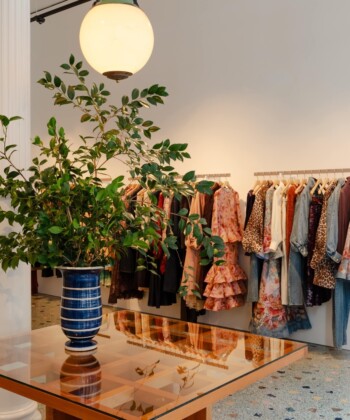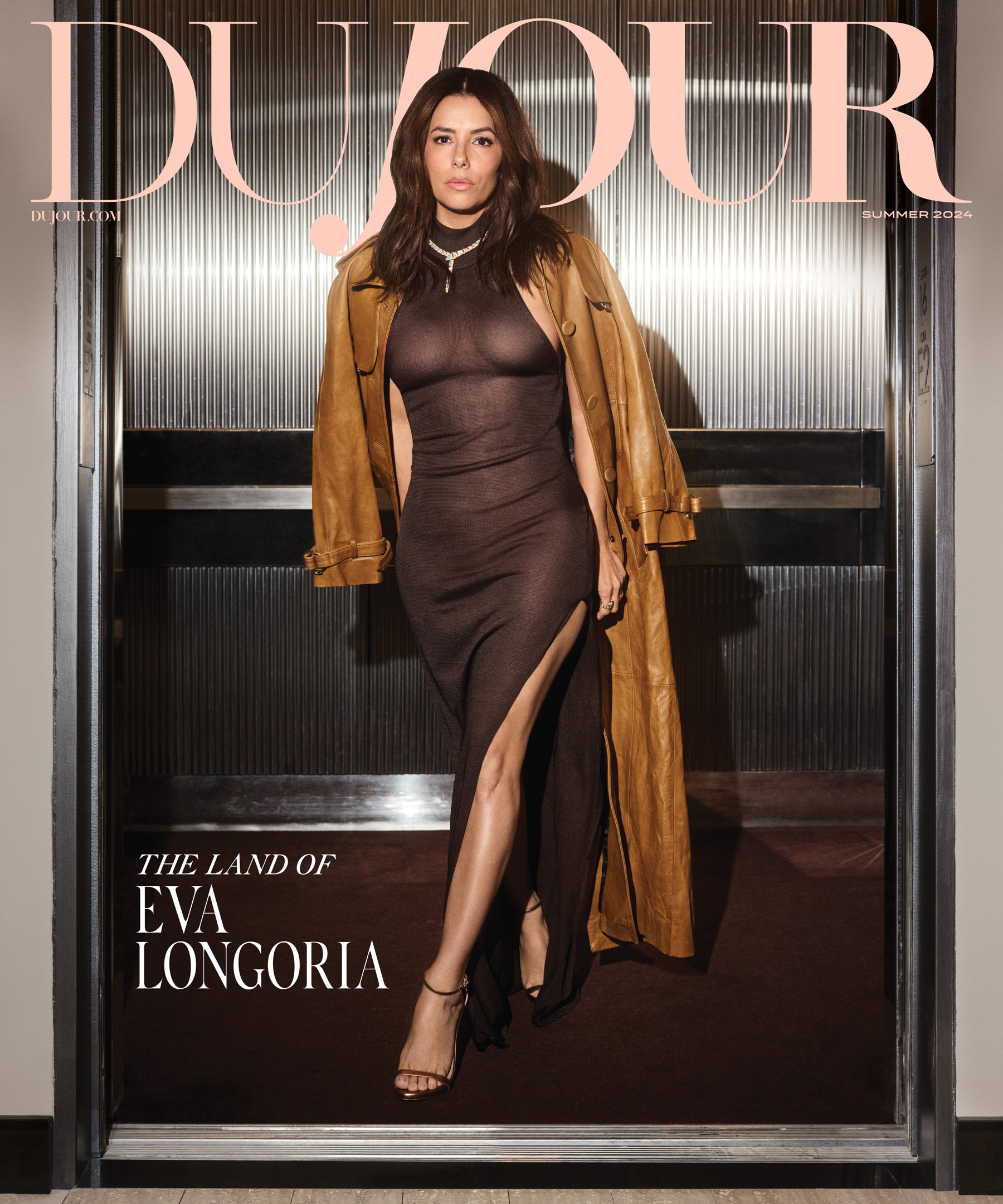On the longrunning Netflix series House of Cards, Robin Wright played one of the more terrifying characters of the last decade: the conniving Claire Underwood, an environmental activist who Lady Macbeths her way to become, in the final season, president of the United States. The series earned Wright a well-deserved Golden Globe and several Emmy award nominations.
This March, in the Netflix fantasy film Damsel, Wright plays a similarly intimidating character. She is Queen Isabelle, mother to Prince Henry (Nick Robinson), who will stop at nothing to continue a grisly tradition: sacrificing a young woman to a dragon in order to repay an ancient debt.
Isabelle meets her match in Elodie (Millie Bobby Brown), the titular damsel who is not going to let some fire-breathing beast take her down without a fight. Wright describes the 20-year-old Stranger Things star, who also produced the movie, as a “little whippersnapper” with “quite a presence on screen.”
“You’re either born with it or you’re not,” says Wright of Brown’s talent. “And she was.”
The Texas-born Wright, 57, was clearly born with it, too. She grew up in San Diego and began modeling at age 14. By her late teens, she was already acting on the daytime soap Santa Barbara, and a transition to feature films like The Princess Bride came soon afterward.

Damsel is a particularly cool fairy tale for contemporary audiences, says Wright. “It’s not the classic ‘damsel in distress’ story. It’s very modernized,” she explains. “The dragon is not just evil; it’s not just trying to kill and maim. It’s doing it for a female reason that’s beautiful. We could also tap into the metaphor that the dragon is the state of our world we’re all trying to fight.”
Wright’s not sure how the script for Damsel arrived in her inbox, though she did quite like director Juan Carlos Fresnadillo’s 28 Weeks Later, a 2007 standalone sequel to 2002’s 28 Days Later. Wright surmises that, when casting, Netflix executives thought of her because they were well aware of her work on House of Cards and thought, “She knows how to play an evil queen.”
In Damsel, Queen Isabelle “absolutely believes you have to continue this tradition” of human sacrifice, says Wright. In contemporary terms, she affirms, “We would call her a sociopath.”
“Robin manages with very nuanced craft to portray the most evil behavior. The audience can feel and understand where this evilness comes from,” says Fresnadillo. “She takes you with her heart, and a mesmerizing performance, on a path that can lead you to the darkest places.”
Wright laughs at the idea that she’s been typecast, first as a deceitful POTUS-in-waiting and now as a manipulating queen. In fact, during our interview, the actress—thrice married and divorced, most recently to Clément Giraudet, who worked at the time in VIP relations for Saint Laurent—is refreshingly warm.
“These are just fun to play,” Wright says. “It’s a hoot playing characters like that.”
Scheming swindlers are quite a change from the gentle characters Wright played in the early days of her career. There was Jenny, the angelic best friend-turned-wife of Tom Hanks’ title character in 1994’s Academy Award–winning Forrest Gump. And, of course, there was her breakout role as the farm girl-turned-princess in 1987’s The Princess Bride, which, even 35 years later, remains an unparalleled and charming mainstay.
“It’s so funny,” recalls Wright. “I was doing an interview about Damsel, and one of the questions was, ‘Can you imagine Princess Buttercup growing up to become Queen [Isabelle]?’ I said, ‘Don’t even say it! Let Princess Buttercup be innocent!’”
Wright admits that over the following years she was often typecast as another kind of woman, “the pained mother-slash-wife.” But when House of Cards came along, “that kind of opened up a new vein. It was so nice to break out.”
House of Cards also encouraged Wright to try her hand at directing, and she ended up behind the camera for 10 of the series’ episodes. With an experienced crew behind her, adding to her duties on the show “wasn’t really that much harder. You do sleep less. I’d stay up till midnight because we were shooting in Baltimore and our editors were in L.A., then at 4:30, get in the gym with my trainer, then the makeup trailer around 6 a.m.”
Directing herself was kind of like turning on a light switch: “I would call ‘Cut!’ in the middle of a scene when I thought I was shite.”
Still, Wright adds, “I’m probably a really annoying actor to direct. I’m always inserting myself inappropriately into the conversation: ‘Why don’t we try this? What if we did that?’” She’d often ask Gary Jay, the late camera operator on House of Cards, about the lenses he was using. He became Wright’s directing mentor and was the one who suggested she give directing an episode a shot.
“I was petrified, but we had so much fun,” Wright says. Now, she says, “I sure do love directing. I love seeing the evolution of a performance; how you can throw a little piece of a novella at an actor and watch the transformation happen in front of you.” Yes, every actor’s different, but “we know what we need, and I love the collaboration. There’s nothing more fun than building. I don’t care what kind of project we make, even if it’s, ‘Let’s go make a papier-mâché house.’”

“She’s a very curious woman,” adds Damsel director Fresnadillo. “She has a humbleness and an openness to absorb and learn from everything and everyone. She’s a strong creative collaborator and a true team player.”
At a Netflix Emmy party, Jason Bateman asked Wright if she would direct some episodes of his series Ozark. She said yes. “It was one of my favorite shows,” she says. A producer sent her the script for the film that became her feature directorial debut, Land, about a woman who decides to live off the grid after her husband and son are killed in a terrorist attack. She shot it in 29 days in and around a cabin at the top of a mountain in Alberta, Canada.
“It was an incredible experience and incredibly challenging,” Wright says. “I learned a lot from the mistakes I made, and I’m hoping I won’t make the same mistakes again.”
Wright has moved on to speaking about her next project, a series for Amazon she’s currently prepping in London called The Girlfriend, based on the novel by Michelle Frances. It’s a psychological thriller about a strange love triangle between a mother (Wright), her son and her son’s new girlfriend (Olivia Cooke).
“I really want to feel the textures of tension between these two women,” Wright says about her approach, which includes using Saltburn as an inspiration. “In another world, my character and Olivia’s would have been BFFs. They’re really wily, strong alpha females, and they’re both in love with the same boy. One who just happens to be my character’s son. It’s twisted. He’s caught in the middle, wondering who to believe.”
Wright hopes she can make something surprising with The Girlfriend. With “400 other television shows” to compete with these days, “it’s so hard to be original,” she says.
That said, she has no interest in mining Forrest Gump or The Princess Bride for a new story with familiar characters and IP. “They talked about doing a sequel to The Princess Bride, meeting Westley and Buttercup 25 years later, but maybe Rob Reiner pooh-poohed the idea. I agree. Just keep that sweet piece of cinema alone.”
Only in the last decade did Wright’s own children, Dylan and Hopper—with her ex-husband Sean Penn, now both in their early 30s—even watch The Princess Bride.
“We probably tried to show them when they were younger,” Wright says. “They never wanted to watch our movies.”
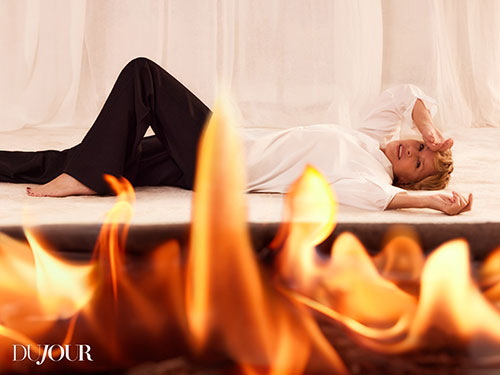
Now, both kids are pursuing careers in the arts. Hopper is currently producing a music video in Thailand. Dylan is developing her own projects. “I’ve a feeling she’ll be a director,” Wright says.
As kids, both said they’d never act. “They thought it was boring,” Wright says. “But they knew acting from watching on a set where they weren’t working. That’s boring.”
As they’ve grown, “we both have worked with them on scenes or run lines for auditions all the time,” Wright explains, referring to Penn. “They’re both so good. I love it whenever they ask. It’s fun to see them growing at it. They’re still finding their way, but they’ll find it. They definitely have the creative gene.”
Meanwhile, Wright recently reteamed with her Forrest Gump family—Hanks, director Robert Zemeckis and screenwriter Eric Roth—to film a movie called Here, based on a graphic novel by Robert McGuire. “Actually, we all live around the corner from each other [in California],” Wright says. “It was like no time had passed getting the band back together.”
The film takes place in a single room and tells the story of the different people who have lived there. “It spans the entirety of civilization,” Wright says. Both she and Hanks had to play themselves in their 20s. “I’m almost 60 and Tom’s 60-something. We’re never looking 32 or 19 ever again.”
But, as when they de-aged Harrison Ford in the latest Indiana Jones movie, Zemeckis used a “deep fake” camera that “downloaded every piece of data [the stars had] ever had on screen,” Wright says, including Hanks on Bosom Buddies and Wright on Santa Barbara and being interviewed on Entertainment Tonight at 20.
“You could see the innocence in my eyes, and they’re translating all of that youth onto my 57-year-old-face,” Wright says. “It’s so trippy. Oh, my God. Both of our mouths fell to the ground. My first question was, ‘How dangerous is that?’ But it’s happening anyway. It’s moving so fast.”
And in all likelihood, that new technology will just inform Wright’s continuing career, in front of and behind the camera.
“You know what? A director can’t make anything without a team. The best idea wins. There’s no ego,” Wright says. “And I love the teamwork.”
Hair: Daniel Martin
Makeup: Joey Choy
Manicure: Edyta Betka
Contributing Visuals Producer: Catherine Gargan Hall
Photography Assistants: Ben Kyle, Isaak Hest
Fashion Stylist Assistant: Olivia Bellamy
Shot at the 1 Hotel Mayfair in London












